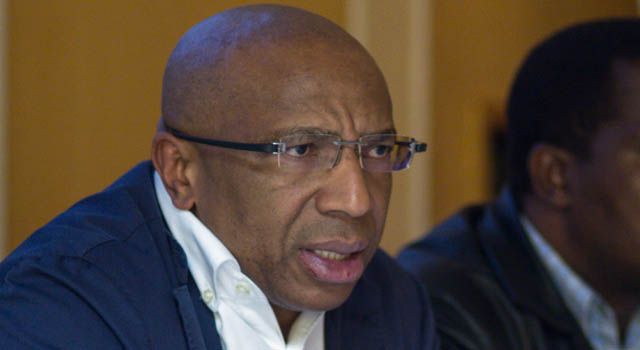
Telkom has agreed to pay a R200m penalty and, much more significantly, to “functionally separate” its retail and wholesale divisions, to adhere to pricing commitments for the next five years, and to allow its future conduct to be monitored.
This all forms part of a broad-ranging settlement with the Competition Commission over anticompetitive abuses that that took place between 2005 and 2007.
The settlement package also includes an admission of guilt by the operator and a commitment to “transparent transfer pricing” to ensure “nondiscriminatory service provision” by Telkom both to its retail division and to Internet service providers (ISPs).
Deputy competition commissioner Trudi Makhaya says a code of conduct will developed to articulate how the separation of retail and wholesale is going to work. The principles of this code of conduct will be finalised in an operational document and will be designed to ensure that any discriminatory treatment will be noticed.
A series of complaints were lodged against Telkom by a number of ISPs that alleged the operator abused its dominance. The commission referred the matter to the Competition Tribunal in 2009.
The proposed settlement is subject to approval by the tribunal.
In April, Telkom agreed to pay a R449m fine relating to earlier complaints against it pertaining to accusations that it denied rivals access to essential facilities between 1999 and 2004. Telkom had initially appealed against the Competition Tribunal’s decision but dropped its appeal in March.
Given the magnitude of the earlier fine, Telkom could have faced a heftier penalty had it not reached the proposed settlement with the commission.
Telkom CEO Sipho Maseko says that should the tribunal agree to the settlement, Telkom will no longer face any investigations from the competition authorities.
As part of the proposed settlement, Telkom has agreed to wholesale and retail pricing commitments for the next five years. It’s estimated these will yield R875m in savings to customers.
Investigating the ISPs’ complaints, the commission found that Telkom had contravened the Competition Act by engaging in a margin squeeze of its ISP competitors.
Telkom was found to have charged excessive prices for some services; refusing to give a competitor access to an essential facility when it was economical feasible to do so; engaging in exclusionary acts; and selling services by forcing the buyer to accept a condition unrelated to the contract.
The R200m penalty is to be paid over three years.
The commission says that from now on Telkom will have to keep separate internal accounts for its own retail services and Internet access products so that it can be monitored to ensure it does not engage in margin squeeze in future.
Furthermore, over the 2014, 2015 and 2016 financial years, Telkom will have to reduce the prices of its wholesale services implicated in the complaint — namely undersea cable international lines, national high bandwidth transmission lines, access to ADSL lines via its IP Connect service and Diginet leased-line access — and related retail products.
The price reductions are weighted more heavily in favour of wholesale services “to bring about a more competitive market and will amount to an estimated R875m savings to the market”.
Makhaya says the details of the price reductions will remain confidential because releasing them could have implications for Telkom’s competitiveness. She says the price reductions have been distributed between wholesale and retail, with wholesale receiving the lion’s share of 70% of the reductions.
“We’ve had detailed discussions on the percentage reductions per product,” Makhaya says, adding that the exact figures won’t be released because that would give away Telkom’s pricing strategy. “I don’t think it would be in the interest of competition.”
Telkom will also have to ensure that any price reductions are not reversed in the 2017 and 2018 financial years.
The operator has also agreed to provide points of presence “at strategic locations in the public sector”. The commission says this, in conjunction with price reductions, “is aimed at creating not only a more competitive market in South Africa, but also aiding government in the provision of public services in a digital economy”. — (c) 2013 NewsCentral Media




